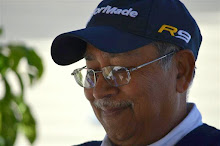The subject of arrest of hackers was the talk of the small town.
Let us find out find out what is happening in the aforesaid tea stall in the evening!
As the afternoon sun cast long shadows across the cobblestone street, the tea stall buzzed with activity, its patrons engaged in spirited discourse. Among them sat Ganesh, a seasoned thief with a weather-beaten face and eyes that gleamed with mischief. He regaled his companions with stories of his ancestors, tracing the lineage of their clandestine trade through the annals of time.
"My grandfather was the first to tread this path," Ganesh declared, his voice tinged with pride. "He was a master of disguise, his body slick with oil to slip through the tightest of spaces. With rope and dagger in hand, he prowled the night like a shadow, leaving no trace of his presence behind."
The others nodded in silent reverence, their imaginations ignited by tales of daring escapades and narrow escapes. But Ganesh's narrative was not merely a journey into the past; it was a testament to the evolution of thievery itself—a saga of adaptation and innovation in the face of changing times.
"Then came my father," Ganesh continued, his voice lowered to a conspiratorial whisper. "He embraced the ways of the modern world, mastering the art of lock-picking and cracking safes with ease. No bolt could withstand his skill, no combination too complex to unravel."
As he spoke, the group leaned in closer, hanging on his every word. The allure of the unknown beckoned—a world where boundaries blurred and the line between legality and illegality grew ever fainter.
But it was Tuku who offered a glimpse into the future, his tale a testament to the intersection of tradition and technology in the world of thievery. With a sheepish grin, he recounted the story of how he stumbled upon his would-be wife—a kindred spirit in the shadowy realm of subterfuge.
"It was on a moonlit night, much like this one," Tuku began, his voice tinged with nostalgia. "I was casing a wealthy estate, plotting my next move, when I stumbled upon her—a maid servant with a twinkle in her eye and secrets to spare."
The group listened intently as Tuku detailed their clandestine courtship, a delicate dance of deception and desire played out against the backdrop of a changing world. Together, they formed a formidable duo, combining her insider knowledge with his technical prowess to orchestrate daring heists with surgical precision.
"But it wasn't just about the thrill of the chase," Tuku confessed, his gaze softening. "We found purpose in our exploits—a means to an end, albeit a dubious one. Occasionally, we'd even lend a hand to the authorities, providing them with valuable intel in exchange for a modicum of leniency."
Tuku continued," Even the hackers have paid us for providing information about various households. We have our data compiled and stored in our computer. We have collected data about senior citizens staying alone without their sons and daughters. "
As his words hung in the air, a sense of camaraderie settled over the group—a shared understanding of the complexities of their chosen profession, and the blurred lines between right and wrong. In the world of thievery, morality was a luxury few could afford, and survival often trumped virtue.
And so, as the afternoon waned and the shadows lengthened, the thieves lingered at the tea stall, bound by a common thread of experience and ambition. For in the ever-shifting landscape of crime and consequence, one truth remained immutable: the pursuit of fortune, however dubious its means, was a journey best shared among friends.


